There have been a ton of exciting new camera releases this year, including the RED Komodo, Sony A7S III, Panasonic BGH1, URSA Mini Pro 12K and the Fuji XS10. I plan to share some more thoughts on these cameras in the future, but today I want to focus on what is (for me) the most enticing new camera this year – The Canon C70.
If you’ve been following my site for any length of time, you might know I have a bit of a love/hate relationship with Canon.
While I did absolutely love my Canon C100 when I had it, that was really the only Canon video camera that spoke to my needs from both a functionality and cost perspective. Many of their other offerings were simply too expensive for what they were able to deliver (on paper at least), or just not capable enough technically.
But if I learned anything from using the C100, specs alone don’t ever show you the full picture when it comes to Canon.
Say what you will about how Canon cripples the performance of their own cameras to preserve the rest of their lineup, but also recognize where they shine; image quality, color science, dynamic range, and usability/reliability.
Those are the variables that typically appeal to me most, certainly more than technical capabilities alone, like high resolution recording. Maybe that’s why I wasn’t all that excited by Canon’s other relatively recent release, the EOS R5…
Although Canon had finally broken some new ground with the R5 by offering 8K Full Frame recording, that didn’t make the camera any more appealing to me. I’m perfectly happy with HD or 2K for my personal projects, and 4K for client work. 8K is simply unnecessary almost all of the time, and if anything can slow things down unnecessarily in post.
That’s not a knock against the R5, I haven’t shot with it yet and am sure it can deliver great images. But like many of Canon’s other cameras, it just sort of missed the mark for my creative needs, and I don’t need another DSLR-style camera.
That said, when Canon recently announced the C70 I had a very opposite reaction.
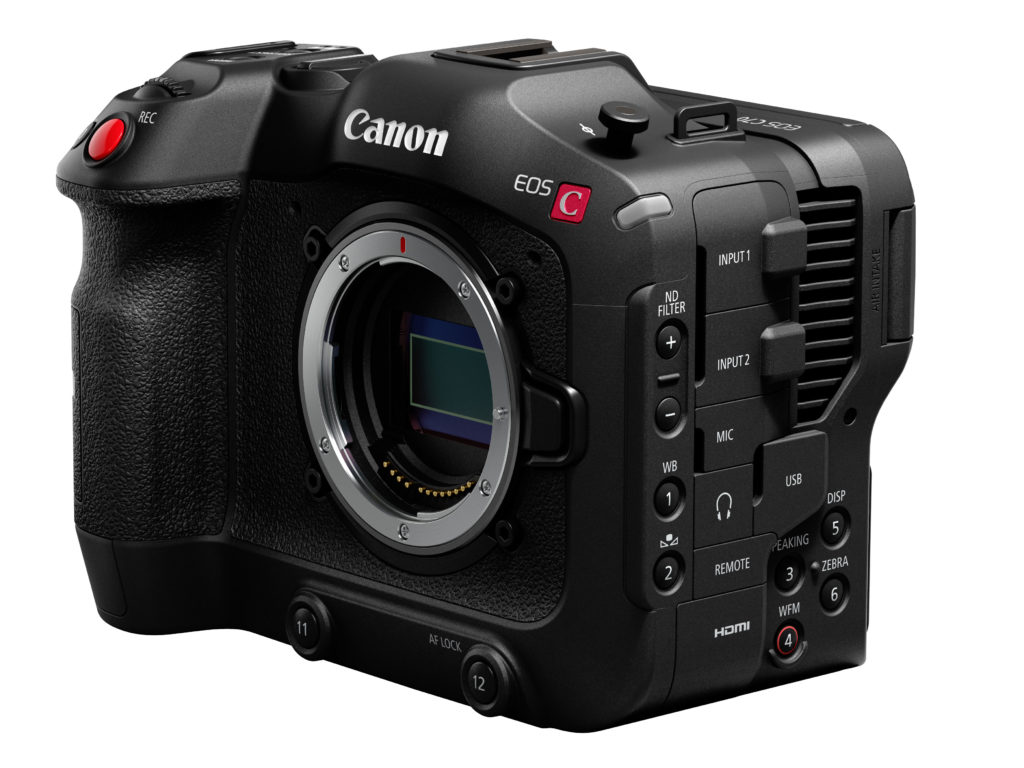
The C70 is of course the latest in Canon’s C-line, and is like a smaller brother to the C200, although it’s priced higher at $5499.
Below are the specs –
- Super 35 Dual Gain Output (DGO) Sensor
- Super 16mm Crop Mode
- 4K 120p, 2K Crop 180p HDR Capture
- Canon Log 2, 3, PQ & HLG Recording
- RF Lens Mount / EF Mount with Adapter
- 16+ Stops of Total Dynamic Range
- Built-In ND Filters / Auto ISO & Gain
- Dual Pixel CMOS AF & EOS iTR AF X
- 1 BNC Timecode / 2 Mini-XLR Audio Inputs
- Dual SD Card Slots, LUT/Long GOP Support
This may not be the flashiest spec sheet on the market, but it definitely ticks off a lot of boxes for me – and that in a sense is the most important variable.
Like many of you reading this blog, I thrive as a jack of all trades. And that means working with tools that can be incredibly versatile. The C70 appears to be that kind of tool.
The body of the camera appears to be in between a more traditional Canon Cinema camera and one of their DSLRs. This is amazing for those of us who alternate between small narrative productions and larger corporate shoots.
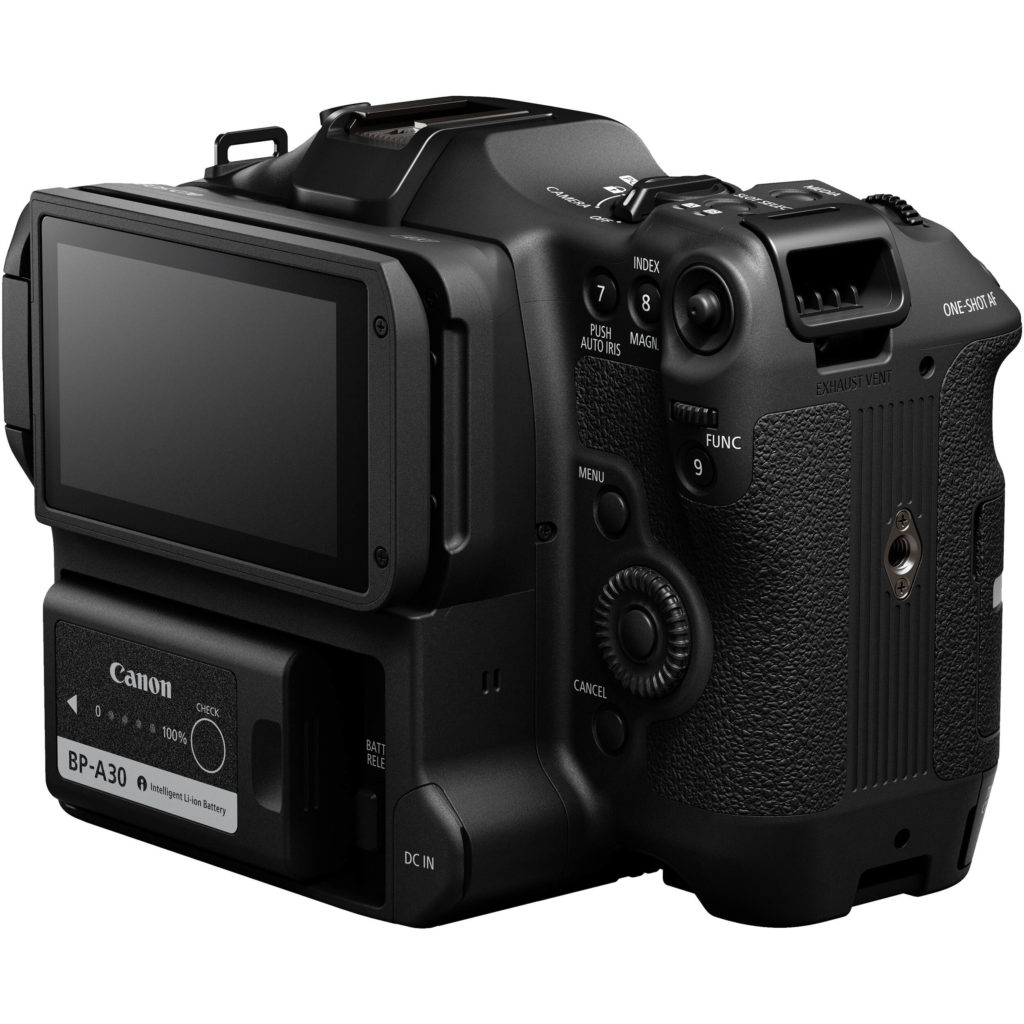
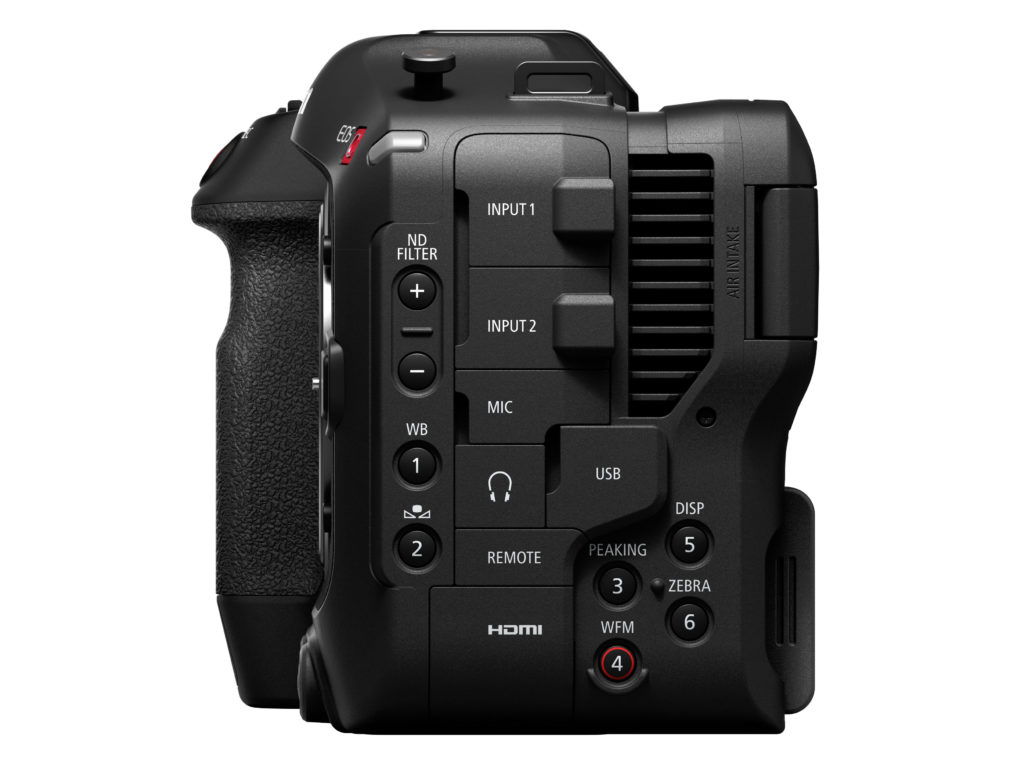
It may not be as tiny as other mirrorless cameras like the Sony A7S III, but that can be a good thing.
Outside of some specific scenarios where I really need the smallest footprint possible, most of the time I prefer something more moderate. I like working with a camera that’s just big enough to give me some stability when shooting handheld, but not so big that it’s uncomfortable on a long shoot day. The C70 fits right into that range.
The sensor in this camera also goes a long way with regards to versatility. Time will tell if it really delivers 16+ stops of DR, but even at 14 that would be plenty for virtually any type of production, from natural light guerrilla shoots to bigger budget commercials.
Super 35mm is also the right format for those of us who juggle a multitude of project types. Full frame is overkill for most projects, and despite its popularity right now with the filmmaking community, S35 is still my personal preference most of the time.
Sometimes I like to dabble in Super 16mm, not just when shooting on film but also when shooting digitally – most often with my original Blackmagic Pocket Camera or Micro-Cinema Camera.
Naturally then, I was thrilled to discover the Canon C70 had a Super 16mm crop mode. This would allow me to use my Super 16mm lenses on the camera, and punch in on my S35mm to simulate a Super 16mm look. I know this isn’t the biggest selling feature for most filmmakers, but oddly enough for myself it is!
Another huge consideration for me is built-in ND filters. After getting spoiled with them on cameras like the C100 and URSA Mini Pro 4.6K, it’s kind of frustrating to work without them now. The fact that the C70 includes built in NDs makes it all that more enticing. I wish more cameras would include built in NDs, and am surprised more manufacturers aren’t making this a priority.
The integration of new R Mount is a great choice as well, as it allows you to use all the new Canon mirrorless R-series lenses, as well as any EF lenses with an adapter. Canon even offers a 0.71x speed-booster style adapter, converting your full frame EF lenses to Super 35mm R lenses.
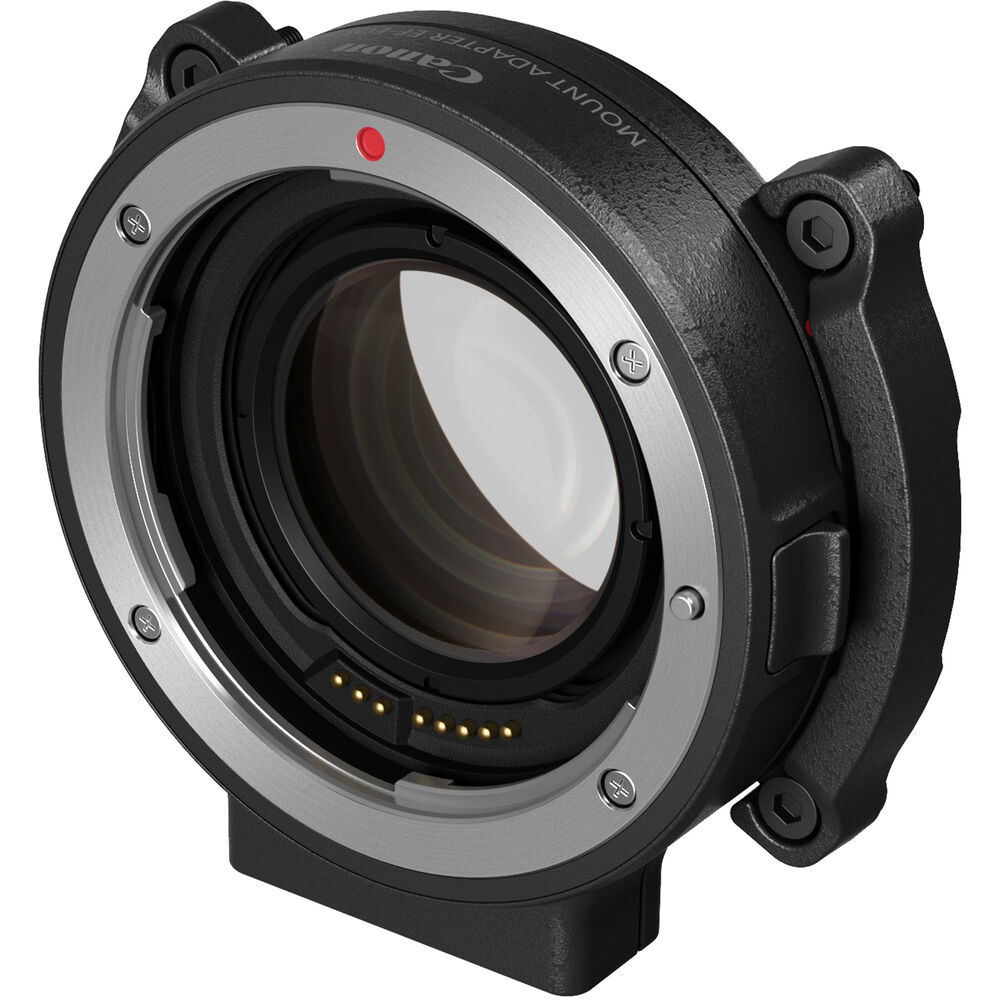
The C70 records to H264 and H265 up to 260 Mb/s internally at 10bit, which is fantastic. Even the C200 doesn’t do this, although the C200 can record RAW internally whereas the C70 can not.
Although I would have loved to have seen a compressed RAW recording option included, it really isn’t a deal breaker for me. If I really had a need for RAW I would just use an external recorder, and 99% of the time I would be happy with the 10bit internal record options.
I also really like the camera’s ability to simultaneously record full resolution and proxy files to SD cards. For some jobs this would be a lifesaver and dramatically improve the post-production workflow.
And given the amount of time I spend creating and using color grading LUTs, the C70’s ability to display custom LUTs is of particular significance.
Does this camera have every feature in the book? Of course not.
It maxes out at 4K, doesn’t record RAW, doesn’t shoot full frame, and lacks a handful of other features that some filmmakers clamor for.
But when purchasing a camera, you have to decide which features actually matter to you. With the C70, most of the features that it’s lacking simply aren’t important to me, and perhaps may not be to you either.
But the features that it does offer are quite unique, not just in their functionality but in their application.
For jack of all trades filmmakers looking for the most versatile camera, I have to imagine the C70 is going to be hard to beat. Not many other cameras are going to offer this level of performance and versatility straight out of the box without accessories.
Cameras like the RED Komodo are exciting for different reasons – because they specialize. The Komodo will undoubtably be an amazing tool for low budget narrative/commercial filmmakers in need of raw, high resolution recording on a budget, just as an example.
But for those in need of a single tool that can do it all, the C70 might just do the trick.
I’m not sure whether I’ll end up buying this camera, as I have a few others that serve my needs quite well right now. But if I didn’t own anything and was looking for one camera to cover my bases, the C70 would be a major contender. If it were priced under $3K, it would fly off the shelves, but perhaps we’ll arrive at that price point with the rumored C50 in the future.
I’ll aim to post an update on the C70 down the line once I have an opportunity to actually shoot with the camera in the field.
What do you think? Is the Canon C70 a camera that could work for your needs?
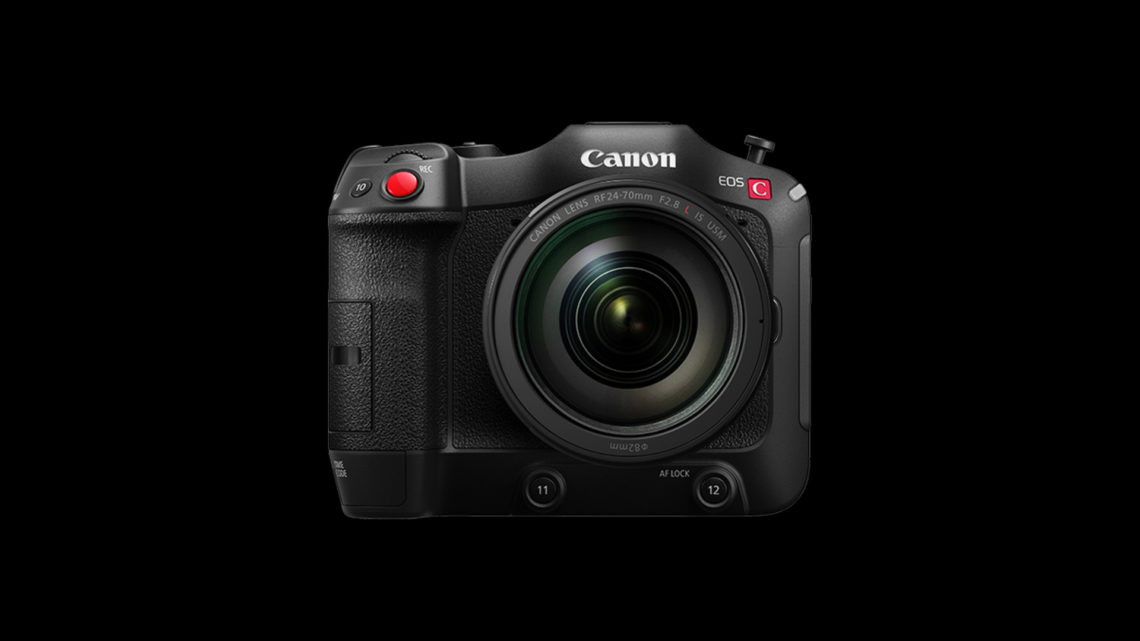
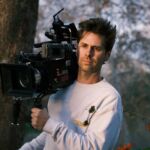

20 Comments
Ern
atHey there Noam, thank you for the nice write-up on this camera. I am trying to find more information about Super 16 lenses on the C70, but I can’t find any. As an owner of really nice Zeiss Super Speed Super 16 glass myself, I am considering this camera, so I can use them in a more modern platform. I know it’s limited to 2k etc, but can you share a bit more of your experience with this combination? Lens coverage etc, digital stabilization etc? From what you wrote I gather you’ve done it right? Thanks!
Noam Kroll
atThat’s a great question, but I haven’t actually paired 16mm glass with the C70. I plan to test that out in the future though, so will aim to report back soon.
Ernie
atThanks for the review. Have you tried the Z Finder or Portkeys as an EVF solution? I REALLY prefer a viewfinder, powered or magnifier. I’m old 🙂
Noam Kroll
atI haven’t tried it, but I would prefer it too! I love using an EVF.
JAMES WOOD
atHDMI-only out is difficult if trying to use c70 as A camera. strange that only sdi connector on camera is for timecode. but I do love my new c70 as a workhorse.
Noam Kroll
atGood point, James. Glad you’re enjoying the camera otherwise!
Alessandro
atHey Noam, what about the 6k PRO from Blackmagic? What do you think about it as a contender?
Noam Kroll
atGreat camera. I used it fairly extensively recently and will be sharing my thoughts and the results too.
Reuben Aaronson
atalways appreciate your thoughtful reviews.
that you come from C100 is important to me as that’s my camera of choice, too.
if there were a C100 MIII that just bumped up to 4K, I’d chomp it up.
not convinced the C70 is C100 on steriods.
played with it briefly. need more time with it.
looking forward to your reactions/impressions when you get hands on…
Noam Kroll
atAppreciate it, Reuben. I’ll be sure to report back soon once I’ve had a chance to work with it.
John Reynolds
atI just shot a concert with a gh5, bmpcc4k, and my c100
I had to do nothing to the c100 footage, it looked great.
Much less work using the wide dr. No need for log, it was controlled lighting.
Still works in 2021.
Noam Kroll
at100%! Such a great camera, even still to this day.
Anorda Photography
atEveryone knows ND filters work best at the sensor level and this feature on the C70 (and other C-line cameras) makes it easier to change lenses when shooting video.
Noam Kroll
at100%.
Pablo
atHow about S1H??
Noam Kroll
atA great camera too.
Liam Martin
atI have gone ahead and pre-ordered one. For better or worse, I am a jack of all trades kind of filmmaker, and this camera makes so much sense. The best return on investment I ever got was my old C100, which paid for itself very quickly and then I shot a lot of hours on it. Every now and again I’d have to rent a higher end cam, but that was about 5-10% of the time. I upgraded to a C200 and loved the image in raw, but it never fully took the C100’s place as a workhorse do it all camera, a C300ii would have been more suitable. Now the C70 has come along, and it just makes a lot of sense and feels like they’ve put the best of all their cinema line in a body you can easily shoot all day or sling on a gimbal without hesitation. Raw is great but a decent codec well shot is usually enough, and I can’t imagine missing raw for 99% of my work.
Noam Kroll
atThat’s great to hear, congrats on it! Please let me know how you like the camera.
Anderson
atHi Noam,
Nice post!
One I thing I didn’t like on C70 is the fact it doesn’t record RAW internal or external, other than that it looks like is a great camera.
Noam Kroll
atThat would be amazing if it did – perhaps next version it will.